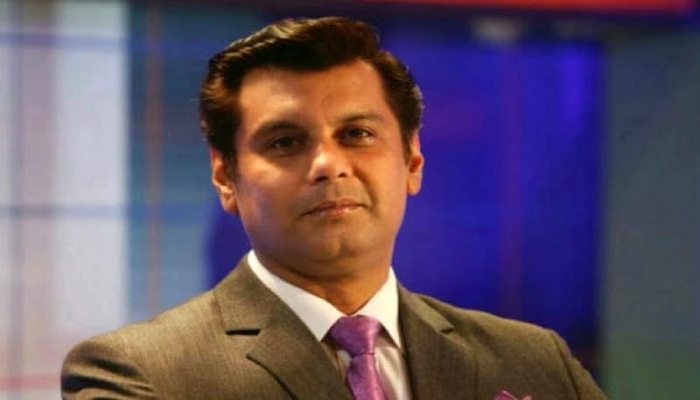Trump’s grandstanding on national security could end in tragedy
0 comments | by M.K. Bhadrakumar

None of the capitals singled out in the Trump administration’s National Security Strategy as being the United States’ prime adversaries – Moscow, Beijing, Tehran, Pyongyang – appear to feel particularly threatened by the fire and brimstone in that document, which was unveiled on Monday. The Kremlin spokesman Dmitry Peskov shrugged the matter off, saying he could see traces of an “imperial nature” in the NSS “as well as unwillingness to abandon the unipolar world idea and accept a multipolar world.” Peskov saw “some positive moments” in the document where it signals a need to cooperate with Russia in the US’ self-interests, but thought that overall it was too bulky.
Peskov prudently left it to relevant Russia’s agencies to “thoroughly” study the NSS “in order to think it through” – although, prima facie, its “wordings are rather impressive.” The Russian Foreign Ministry had said nothing so far, at time of writing. In a 673-word remark, the Foreign Ministry spokesperson in Beijing, Hua Chunying, poo-pooed the notion that China is in any strategic competition with the US. Hua asserted: “The Chinese people are full of confidence in the path of socialism with Chinese characteristics of their own choice. History and the reality have proven that this is a successful path … No-one and no country can stop the Chinese people from unwaveringly continuing following the path of socialism with Chinese characteristics and reaping greater achievements.”
Hua wound up by offering some friendly advice: “We urge the US side to… abandon such outdated concepts as the Cold War mentality and the zero-sum game, otherwise it will only end up harming itself as well as others.”
Tehran was equally unimpressed, merely noting that the NSS is “devoid of any wisdom and realism” and advising that the US’ real task ahead should be to sort out its “self-made problems, mishaps and challenges, as the realities of the past one year alone testify.”
Trump’s NSS hasn’t set the Thames, or the Seine, or the Rhine, on fire, either. The big question is what purpose the document serves other than the fact that Trump is mandatorily obliged to come out with it in terms of past practice. Is the hoopla justified?
The NSS appears largely to be about grandstanding in front of the gullible folks in ‘Middle America,’ Trump’s core constituency, and signaling that the boss is going great guns. As for the world outside America, Robert Cohen at the New York Times thinks the NSS is downright farcical: “Trump believes everyone will do his bidding because he says so. Hello!” One cannot but agree. The NSS appears largely to be about grandstanding in front of the gullible folks in ‘Middle America,’ Trump’s core constituency, and signalling that the boss is going great guns
The NSS outlines a road-map that is patently unrealistic and could turn out to be a catastrophic overreach. The US no longer has the capacity to enforce its will, as the wars in Iraq, Afghanistan and Yemen show. The Houthis defiantly fired a ballistic missile on Tuesday at the royal palace in Riyadh while King Salman was holding a meeting. The power to dictate that gave traction to Pax Americana has dissipated. That is where the danger lies. If the US tries to dominate, it could trigger tragic consequences. Peskov is spot-on. But the real danger lies elsewhere. The NSS signals that the US could broaden its use of nuclear weapons as part of its new security strategy. The document says: “While nuclear deterrence strategies cannot prevent all conflict, they are essential to prevent nuclear attack, non-nuclear strategic attacks, and large-scale conventional aggression.”
This is the first time that any US administration has said that “non-nuclear strategic attacks” represent a category of threat that the US may use nuclear weapons to counter. The shift certainly anticipates the US’ Nuclear Posture Review, expected in the next few weeks. But what is the definition of “non-nuclear attack” – and, importantly, who defines it? What if the attack is by a “non-state actor”? In September, Rob Soofer, America’s Deputy Assistant Secretary of Defense for Nuclear and Missile Defense Policy, mentioned cyber-attacks against US infrastructure in this category.
The US is unlikely to launch a nuclear war against existing nuclear powers. But the danger lies in it attempting something like Britain’s during the Suez crisis of 1956, when it forgot for a moment that the imperial era had ended – and overreached. It will be extremely difficult for Trump to swallow the humiliation as Anthony Eden (who resigned as British prime minister) did in such circumstances. An even bigger danger lies in Trump creating a pathway for other countries to potentially wage nuclear war – India and Pakistan, for example. In fact, the NSS warns against an apocalyptic scenario in the Indian subcontinent: “The prospect for an Indo-Pakistani military conflict that could lead to a nuclear exchange remains a key concern requiring consistent diplomatic attention.”
M.K. Bhadrakumar served as a career diplomat in the Indian Foreign Service for over 29 years, with postings including India’s ambassador to Uzbekistan (1995-1998) and to Turkey (1998-2001).





